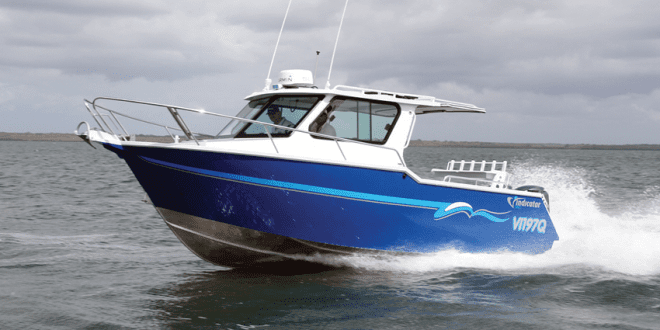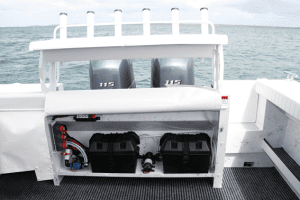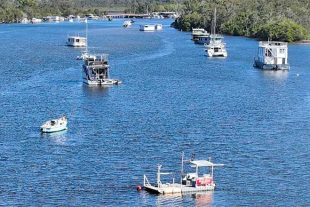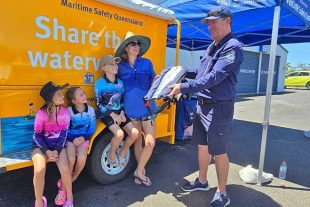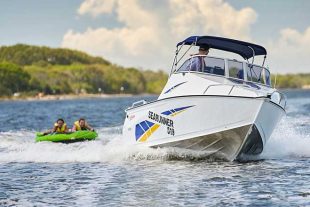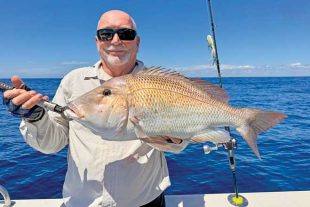You should also be provided with ideas and solutions to ensure the end product is something you will enjoy every time you’re on board. Frank, Glen and Denise from Watson’s Marine Centre are very passionate about their Vindicator boats, and you just have to read the testimonials on their web page to see that their goal is to ensure clients are happy.
I have been lucky enough to test a few of their boats over the years and was recently invited to take both the 680 and 720 Half Cabins for a spin. Those who attended the Brisbane Tinnie and Tackle Show may have seen the vessels I’m talking about. While they look very impressive on a trailer, it is on the water where you really appreciate the hard work that has gone into the design and craftsmanship of these rigs.
For this review I will focus on what I think are key features of Vindicator boats.
Probably the most important attribute of any boat is its ride. The quality of which is basically determined by hull design, overall layout and construction.
Vindicator boats have well-proven hulls that are designed to handle a wide variety of conditions, especially offshore. The hull also comes into its own when at rest, and you only have to look at the chine line and how minimally under the water it goes to see how well it works.
This is still true even when three or four people are standing on one side. Unfortunately this is not something that can be experienced at a boat show with the boat on a trailer, but take my word for it, they are very stable vessels at rest.
Combined with the high sides, you are given a feeling of safety and security as you lean over to net or gaff a fish. Another feature of Vindicator boats is the quality of finish displayed. It doesn’t matter whether it’s a 5.5m Cuddy Cabin or the flagship 720, the finish on each and every boat is of a very high standard.
This not only indicates you are dealing with professional boat builders who take pride in their work, it also shows a boat with longevity that will look as new for many years to come, even when pushed hard through tough offshore conditions.
A key aspect is the amount of deck space, and something that appeals to most people who buy these boats as a dedicated fishing weapon, as it equates to fishing room. Both the 680 and 720 are designed with the maximum beam for normal towing regulations in Queensland, which is 2.5m.
However, I’m not sure if it is the clean, uncluttered space with large side pockets that run the full length of the deck area or the substantial measurements given to this work zone, but you seem to have a massive expanse to fish from.
Either way, the end result is a dance floor that well and truly accommodates four anglers with ease. A number of rod holders and a quality bait board with additional rod holders are included, so you have plenty of options for where to store or place your rods when travelling or fishing. Even with the huge deck area, the helm and cabin have not been compromised.
Both models can accommodate three across the helm, and additional grab rails mean you can easily stand when travelling. The helm and passenger seats have also been designed with storage in mind and can be modified to suit a variety of needs. The cabin areas in both boats are large enough for anyone of up to 1.88m to stand comfortably. Although as expected, the 720 does have a bit more room.
Overall these boats are a pleasure to drive. In fact they are very easy to drive, and it was only when I stuck my head out from behind the protection of the fully enclosed helm that I got an indication of how fast we were actually going in less than perfect conditions.
I guess that is just another thing that makes these fishing vessels so popular. In terms of power plants at the stern, both boats were fitted with twin Yamaha 115hp 4-stroke engines. Even though rated to a take a bit more horsepower, there was still plenty of punch out of the hole and they provided good, low planing speeds.
The 350-litre underfloor fuel tanks that are standard on the two boats complement these efficient engines and ensure a long range. And there is actually room to make the fuel tanks even bigger if required. Both boats also had freshwater tanks, with the 680 holding 70 litres and the 720 100 litres.
Having a good supply of fresh water can be very handy on extended trips. Nothing is better than a quick freshen up, or the water can be used to give your reels a rinse. A full list of other standard inclusions is available, so if you are interested in finding out a bit more about these boats, give Watson’s Marine Centre a call on 07 5482 2135.
You can also check out their web page at www.watsonsmarine.com.au
If you are really keen you might even be able to get Glen or Frank to take you out so you can experience the ride first hand.
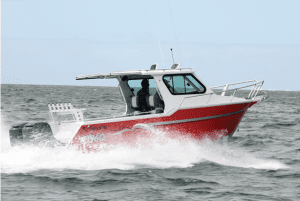

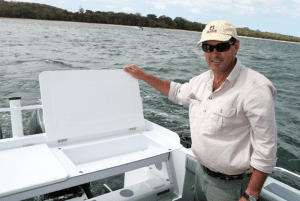
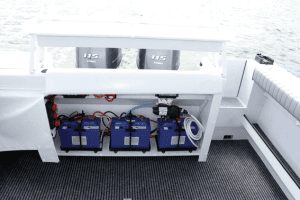
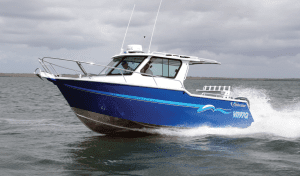
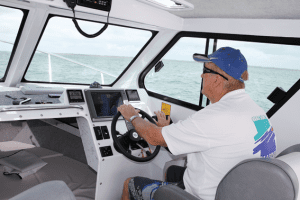
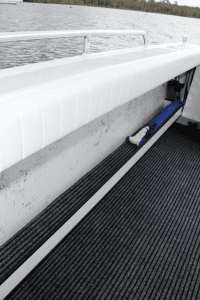
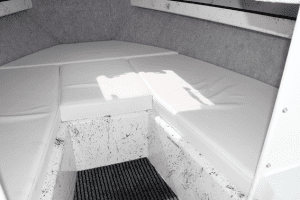
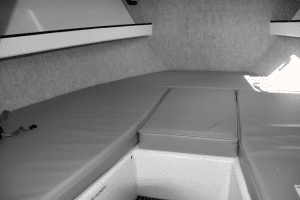
 Bush ‘n Beach Fishing Magazine Location reports & tips for fishing, boating, camping, kayaking, 4WDing in Queensland and Northern NSW
Bush ‘n Beach Fishing Magazine Location reports & tips for fishing, boating, camping, kayaking, 4WDing in Queensland and Northern NSW

